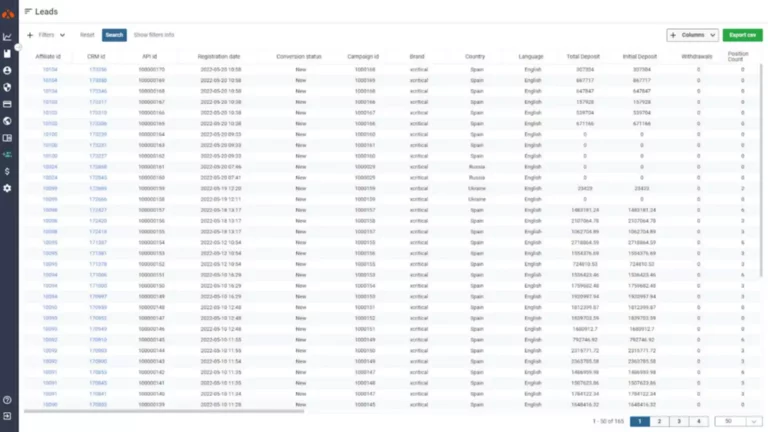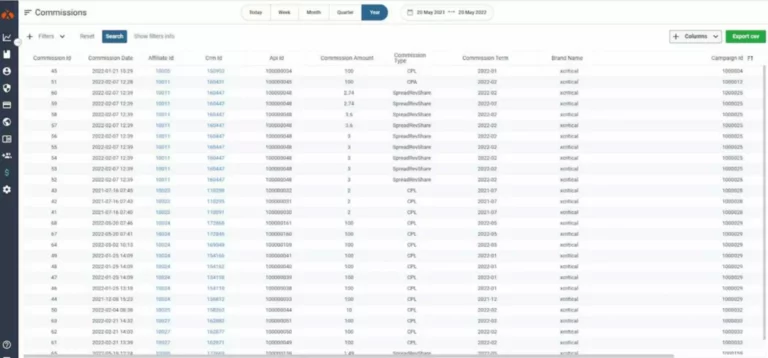Trades are usually matched in darkish pools by contemplating the best bid and ask costs. Dark pools use sophisticated algorithms to match orders and decrease price impact. By keeping giant trades hidden from the public order books, darkish swimming pools aim to forestall slippage, where the execution value deviates unfavorably due to market impact brought on by the trade’s size. A darkish pool allows outsized market gamers to trade giant blocks of digital property without the commerce being visible to the broader public. Their origins in traditional markets go back several a long time, enabled by SEC regulation, which allowed traders to trade securities off-exchange.
This allows them to make trades without having to explain crypto exchange fees their rationale as they look for patrons or sellers. It operates outside the standard exchanges like NYSE, NASDAQ, and BSE, or their crypto counterparts – Binance, KuCoin, and Coinbase. Though, some crypto exchanges tried integrating darkish pool performance into their platforms. For instance, Kraken launched a dark pool in 2015 (however, as of writing, it’s not available). Jerome Pustilnik revolutionized Wall Road by establishing Instinet, the pioneer of electronic trading.
If you’ve ever traded in cryptocurrency, you would have done it on a centralized or decentralized trade platform. This idea has existed in the traditional market for ages but has gained recognition in the world of crypto only recently. Besides, the potential for market manipulation and its impact on price discovery raises concerns in regards to the integrity of the overall market. As a end result, regulatory bodies might impose stricter rules on dark pools to safeguard the interests of buyers and maintain market integrity.
How Does A Sell Stop Market Order Work?

Dark pools enable merchants to make block trades with out having to publicize the buy/sell price or the number of shares traded to the basic public. This means trades are accomplished anonymously and do not give clues to other merchants. The lack of transparency can even work in opposition to a pool participant since there is not any assure that the institution’s commerce was executed at the best value. A surprisingly massive proportion of broker-dealer darkish pool trades are executed throughout the pools–a course of that is named internalization, even when the broker-dealer has a small share of the U.S. market. The darkish pool’s opaqueness also can give rise to conflicts of interest if a broker-dealer’s proprietary merchants trade against pool purchasers or if the broker-dealer sells particular entry to the dark pool to HFT corporations. Dark swimming pools are private exchanges for buying and selling securities that are not accessible to the investing public.
- The Account model, just like a checking account, represents the present state as a group of addresses and their respective balances.
- One of the main advantages this sort of trading has is the improved privateness it offers to traders.
- When a dealer locations swap orders by way of Railgun, a smart contract referred to as Adapt Module performs multiple actions.
- In trades involving a quantity of cryptocurrencies, atomic cross-chain swaps are carried out between forex pairs supported by the platform.
The platform operates as an impartial broker-dealer, meaning it does not engage in proprietary trading or market-making. This seeks to make sure that shoppers’ orders stay confidential and usually are not exposed to the broader market, reducing the danger of value slippage. Moreover, some jurisdictions might impose restrictions on the types of members allowed to access dark pools. This is done to maintain a degree playing area and stop unfair advantages that would undermine market integrity. The primary objective of those rules is to strike a balance between facilitating market efficiency, as well as selling fairness and transparency.
Cons Of Crypto Dark Swimming Pools
Securities and Trade Commission (SEC), including those operated by broker-dealers, company brokers, or exchanges, as nicely as these offered by independent operators. In phrases of trading quantity, darkish pool transactions now account for 30-50% of inventory buying and selling volume. Darkish swimming pools present establishments and traders holding massive positions (aka whales) a platform to place discreet orders with out causing supply shocks within the public market. Darkish pool trading is an attention-grabbing concept that has gained significant traction. It provides a discreet way for institutional traders to execute large trades without impacting market prices.
This permits customers to trade tokens instantly with out ready for consumers or sellers to match orders. By eliminating intermediaries, liquidity swimming pools make trading more environment friendly, non-public, and accessible to anybody, wherever in the world. Moreover, as darkish pool buying and selling volumes grow, they draw more liquidity away from public exchanges, probably increasing transaction prices for retail buyers and decreasing market efficiency. The most generally used darkish swimming pools give attention to equity trading (e.g., Liquidnet, UBS ATS, and Sigma X), however this service additionally exists in different asset markets, together with cryptocurrency. The key distinction between a crypto dark pool and a inventory darkish pool is that the previous focuses on transferring giant quantities of digital property like Bitcoin rather than firm shares.

Dark pool operators have paid over $340 million in penalties since 2011 to settle allegations, though this amount is comparatively small compared to the profits they could Proof of stake have made. Blockchain-based darkish pools goal to get rid of the necessity to trust potentially malicious operators. Moreover, darkish swimming pools provide a spot for equally giant buyers and sellers to come back collectively since they are dedicated completely to massive traders and eschew small or medium-sized merchants. Digital market maker darkish pools are supplied by independent operators like Getco and Knight, who operate as principals for their own accounts.
Bancor, for instance, permits both liquidity pairs and single-sided liquidity. Single-sided liquidity allows LPs to stake a single token whereas the protocol offers the paired asset via an internal mechanism. Most liquidity comes from customers who deposit assets into pools, incomes fees and rewards in return. This user-driven liquidity ensures efficient markets, reduces slippage, and enhances decentralization.
Darkish pools first emerged within the Eighties and have largely been used by institutional traders who trade massive numbers of securities. For those inclined to quick the digital asset, a conspicuous order in the order guide might inflate costs artificially, inducing a sense of panic. However, whether or not you’re a curious observer or an active participant, exploring the world of darkish pool buying and selling unveils a captivating realm that performs a unique function in the ever-evolving monetary ecosystem. To sum up, darkish pool laws vary throughout jurisdictions, with a common focus on selling fairness, transparency, and market integrity. Disclosure requirements and measures to prevent market manipulation additionally play a crucial function in maintaining a degree taking half in area.
The dealer generates a ZK Proof known as “VALID COMMITMENT” to prove possession of their wallet and its orders. A “handshake” is then despatched out to the network https://www.xcritical.com/ to match with handshakes of different merchants. A handshake consists of the VALID COMMITMENT ZK Proof, hashed order particulars, a nullifier, and key pairs. As Soon As a trader’s handshake matches with one other trader’s handshake, Multi-party Computation is initiated. Renegade makes use of collaborative ZK-SNARKs to show that the trader’s orders really match with the counterparty’s orders.
Securities traded in dark swimming pools aren’t out there to the general public and do not have a transparent order book. These exchanges are given this time period due to their absolute lack of transparency. Dark pool cryptocurrency trades are thought to have a limited impact on equity markets as a result of there are caps governing the variety of such trades. Liquidity pools allow DEXs like Uniswap and SushiSwap to facilitate token swaps without relying on traditional order books. As An Alternative, Automated Market Makers use mathematical formulas to find out asset costs based mostly on the pool’s composition.

